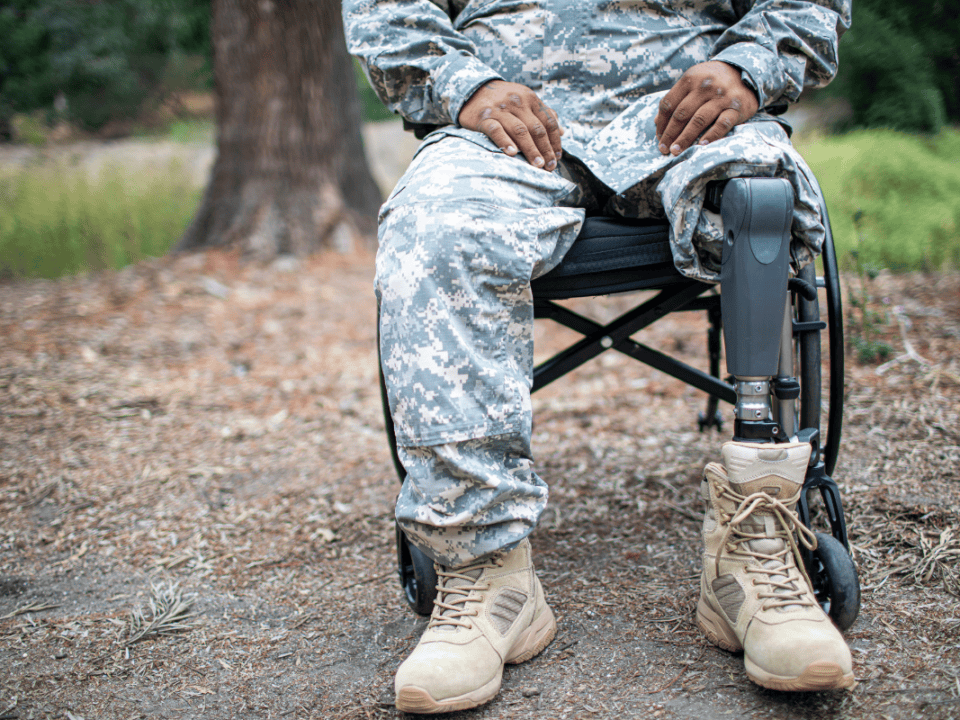 Whether you suspect you may have been exposed to radiation during your time serving in the United States military, or you know for sure you were subject to at least some radiation exposure, it can be hard to know where to begin when it comes to filing for disability benefits. We’ve put together some basic information to help you when it comes to filing your claim.
Whether you suspect you may have been exposed to radiation during your time serving in the United States military, or you know for sure you were subject to at least some radiation exposure, it can be hard to know where to begin when it comes to filing for disability benefits. We’ve put together some basic information to help you when it comes to filing your claim.
You Don’t Need to Contact the DoD First
While the Department of Defense maintains records on radiation during military service, you don’t need to contact them before filing with Veterans Affairs. The VA should contact the DoD for those records on their own, whether the benefits are applied for by the veteran him- or herself or by the veteran’s survivor. As certain health problems are more closely associated with certain forms of radiation exposure as opposed to others, this information will help the VA when looking into your case.
If you have already contacted the DoD or have documentation that proves your exposure to radiation, be sure to have it on-hand during your interactions with the VA.
What Health Problems Are Associated With Radiation Exposure?
This is an important question to have the answers to before you ever speak to the VA about filing for radiation-specific benefits. The VA refers to certain cancers and other diseases most closely associated with radiation exposure as “presumptive diseases”, as the VA feels they can presume radiation was at least a large factor, if not an outright cause, of the disease. These diseases include but are not limited to:
- Cancers of the: bile ducts, bone, breast, brain, esophagus, colon, gall bladder
- Liver cancer, if it is the primary site and not if cirrhosis or hepatitis B is indicated
- Lung cancer (including bronchoalveolar cancer)
- Cancer of the pancreas, pharynx, ovary, salivary gland, small intestine, or stomach
- Thyroid cancers
- Urinary tract cancers (including kidney/renal, pelvis, urinary bladder, and urethra)
- Leukemia (except chronic lymphocytic leukemia)
- Lymphomas (except Hodgkin’s disease)
- Multiple myeloma (cancer of plasma cells)
If you are suffering from any of these listed cancers, you won’t be required to prove the connection between these diseases and your service when it comes to your basic eligibility for disability compensation. If a Veteran dies as a result of one of these “presumptive diseases”, their survivor may be eligible for benefits as well.
Even if you are not suffering from a presumptive disease, you may still be eligible for benefits related to radiation exposure if you are dealing with diseases such as:
All cancers
- Non-malignant thyroid nodular disease
- Parathyroid adenoma
- Posterior subcapsular cataracts
- Tumors of the brain and central nervous system
Also, although not related to radiation exposure, it should be kept in mind that cases of ALS (Amytrophic lateral sclerosis, also known as Lou Gehrig’s Disease) are presumed in all Veterans who served 90 or more days of continuous active military service. If you are diagnosed with ALS, regardless of exposure or lack thereof to any other known contaminants, you may want to look into applying for disability benefits.
How the VA Confirms Radiation Exposure During Military Service
There are certain service areas and timelines in which exposure to radiation was more likely. You can find a list of these locations here on the VA’s website. They will also ask the DoD’s Defense Threat Reduction Agency to confirm whether or not your service counts as part of the Atomic Veterans participation in U.S. atmospheric nuclear tests that took place from 1945 to 1962, through a program known as the Nuclear Test Personnel Review. When necessary, the VA will request from DTRA the actual or estimated radiation exposure you may have received.
There is also a test you may request from the VA: the Ionizing Radiation Registry exam. This is a comprehensive health exam that will include a general physical exam, medical and service history (including any possible exposure to radiation during this time), and laboratory tests. Results are discussed with the Veteran face-to-face and also in a follow-up letter you’ll need to keep for personal documentation purposes.
The Ionizing Radiation Registry exam is free and without co-pay. It is not counted as a disability eligibility exam. It’s simply a good first step towards documenting long-term effects of radiation exposure. Be sure to check out the link before requesting the test — there are some qualifications you’ll need to meet.
Filing a Claim
If you’re looking to file a claim for disability benefits (either for yourself or as a survivor of a service member), you have a few different options. There’s an online application system, you can work with an accredited representative by visiting a VA office, or submit your claim by mail. Whichever of these you decide to do, it’s important to make sure you’ve spoken with a legal representative before you go any further.
You’ll need to know that your individual rights are being protected, and the best way to do that is to schedule a consultation to go over your situation, what documentation you have, and what steps you may need to take next to ensure that you get the benefits you deserve.
Bluestein Attorneys is Here to Help
Our SC Vet Advocates team, who have served themselves and know the unique experiences that military servicemembers work with when it comes to filing for disability benefits, are always ready and willing to help. Our experience and insistence on doing what’s right for our clients may be an invaluable resource for you, and we’d be honored to help you in your fight. Give our VA Team a call at (803) 779-7599 or contact us online today to request your FREE consultation!




